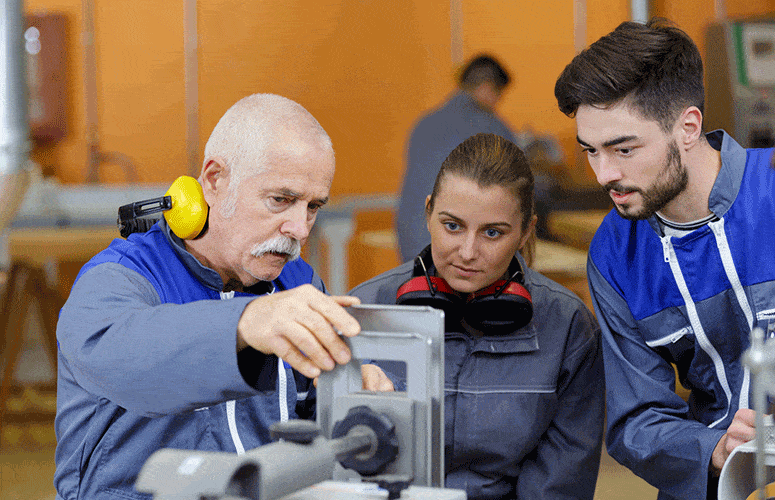
Workforce Development = Economic Development
New Jersey has the best K-12 school system in the country, right? That must mean that our workforce is exactly what our economy needs, right? Not so fast …
By Christopher Emigholz, NJBIA Vice President of Government Affairs On Oct 4, 2021We all saw headlines this summer depicting the challenges of finding qualified employees, or really any employees for that matter. While this was definitely exacerbated by several pandemic-related factors, this is not a new issue for New Jersey’s employers. It is and has been one of the most common complaints NJBIA hears from its members across many business sectors. As someone whose job it is to fight needless tax increases, dare I say there are some employers who even maintain that finding good employees is an even greater challenge than New Jersey’s high tax burden.
So, what is causing this problem?
For one, our schools are not doing a good enough job. Senator Teresa Ruiz from Newark, the chairwoman of the Senate Education Committee, often notes that despite our high state rankings overall, too many schools are still failing our children. On top of that, the education system is NOT designed to meet the needs of the economy. NJBIA has been and will continue to advocate for higher standards, greater accountability, and more choices within our K-12 system to address this, but more is needed.
This summer, we took our advocacy on workforce development to a whole new, more direct level. We successfully lobbied for $11.5 million in workforce development funding in the state budget and have been excited to partner with our community colleges to turn this funding into meaningful resources for both our employers and employees who need help now more than ever.
NJBIA and New Jersey’s community colleges are partnering on the Pathways to Career Opportunities project to establish collaboratives involving K-12 education, higher education, private career schools, workforce development boards, trade unions, community organizations, government, and of course, business, to guide the training needed in the critical industries within our economy. Each collaborative will oversee several centers of excellence in key occupations. These will be led by community colleges, but designed in a way to end workforce development silos and ensure the sharing of best practices for each industry and occupation is happening across all training and education providers.
NJBIA wants a dynamic system where all employers can access the resources they need to find and/or develop the workforce they need. Toward that end, we are excited about this transformational opportunity with our community colleges, and we look forward to involving our members.
NJBIA is also excited that the $11.5 million included funds to restore and expand the successful NJBIA Basic Skills Training program, which has been used by thousands of businesses to train more than 100,000 employees. Despite workforce issues being one of the top challenges for businesses, state support had been cut in the prior fiscal year. This state budget funding will allow the program to expand at a time when employers are desperate to retain and upskill employees. This training is a win-win in that employees gain portable skills that will benefit them for the rest of their lives, while employers improve the quality of their workforce and, hopefully, productivity.
For all the talk about everyone supporting workforce development, NJBIA is excited to finally see the state put some money where its mouth is. NJBIA thanks the bipartisan supporters of this workforce development funding in the Legislature and Governor’s Office. After the economic devastation wrought by the pandemic, we look forward to making a sustainable mark in this critical area of our economy because workforce development equals economic development.
To access more business news, visit NJB News Now.
Related Articles:





